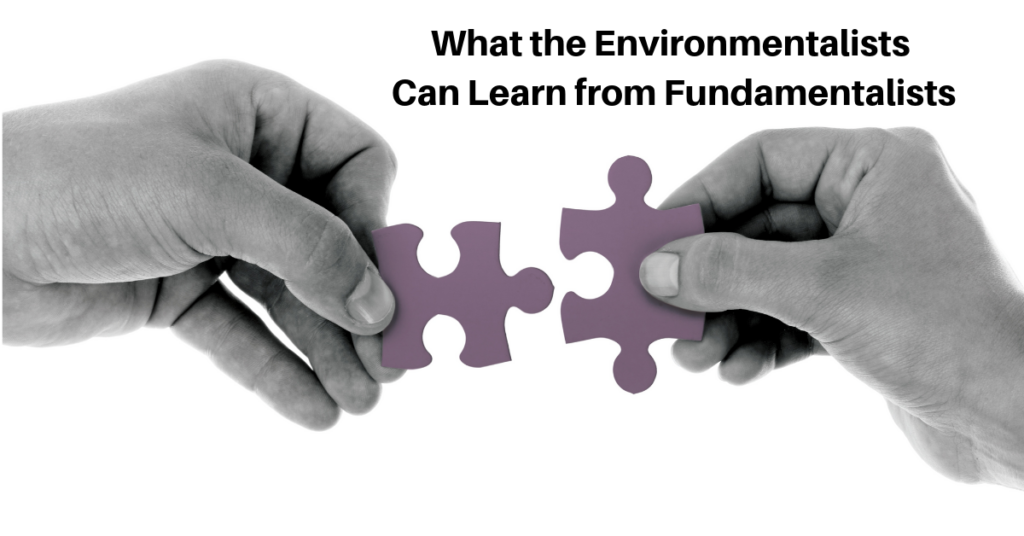What the Environmental Movement Can Learn from Fundamentalists

In moments of passion and enthusiasm, one can gain a glimpse of future potentials—both positive and negative. Such was the case when the executive leadership of my faith denomination issued a statement shortly after the introduction into congress of a resolution in support of the Green New Deal. Our leadership praised the resolution as creating a unique opportunity for our country that was consistent with our own long held values. The overwhelming response to the statement and related advocacy actions was overwhelming positive, but it did spark some conversation in a few circles that reflected the potential for infighting among environmentalists over what was the best course of legislative action in addressing climate change.
As I grappled with how to handle these responses and my own feelings on the matter, I found myself thinking about the psychological zeal of fundamentalists and came across a commentary by Gerald Arbuckle. In it, Arbuckle argued for a pastoral response to fundamentalists that begins by first reflecting upon the axiom, “We are all in danger of becoming fundamentalists.” While I would tend to favor a narrower definition of fundamentalism than one that could apply to anyone, the comment did spur me to think with greater depth about the real and potential dangers faced within environmental movements.
Arbuckle lists a number of traits associated with fundamentalism, such as the tendencies to be reactive to crises, simplistic in solutions, and intolerant of dissent. I do occasionally get whiffs of these traits in environmental circles, and I myself struggle with considering certain perspectives contrary to my own. To guard against an overzealous promotion of my own views and a reactive contempt for differing views, I find it helps to take a step back and think about how I want to ground myself in my engagement with others. What are the values that guide me? How can I best articulate those values to others?
I also remind myself that no one has all the answers, because if someone did, we wouldn’t be in this mess. One might love the Green New Deal or the Energy Innovation and Carbon Dividend Act. One might fervently believe in civil disobedience or mobilizing voters, but I would question viewing any policy or strategy as being anything close to a complete answer. We still have more pieces of the puzzle to find and put together in a way that fits the dire needs of our time.
Without question, we should be passionate and active in what we do and what we support, but I believe we can do that in ways that still exhibit curiosity, grace, and a reflective capacity rooted in our values.
Related News
Growing Weary
In December 1964 during a speech in Harlem, Fannie Lou Hamer declared: “And you can always...
Read MoreOur Moral Center
“We've got about 350,000 people who are dying prematurely from the burning of fossil fuels...
Read MoreChapter Resources
Check out the latest resources for our local Climate Hope Affiliates: December Monthly...
Read More

